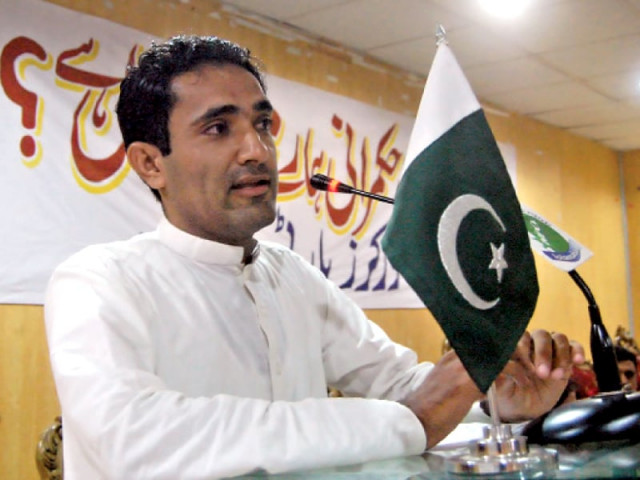Challenging status quo: Does the rule of law work?
Speakers discuss the defects in the existing laws, stress for immediate reforms.

While the rule of law is pertinent to a country’s smooth functioning, our laws have to change to encourage equality, and not just benefit the elite population. This was the crux of a Workers Party Pakistan’s (WPP) tribunal held here on Thursday.
The speakers at the tribunal said that colonial laws need to be abolished and updated to reflect the interests of the public, the parliament must challenge and change most anti-people statuses, and all social and political prisoners be released immediately.
To highlight the mass mistreatment of Pakistani citizens in the name of faulty and exploitive rule of law, a few representatives shared stories of current socio-political prisoners.
Aziz Ali narrated the story of Gilgit-Baltistan’s Baba Jan who was imprisoned on terrorism charges (7ATA). Aziz pointed out that Baba Jan has been granted bail twice, but that the local administration has proceeded to file new charges against him every time so as to prevent his release.
WPP Information Secretary Aasim Sajjad said that the ruling classes employ colonial laws such as the Maintenance of Public Order and Land Acquisition Act to suppress dissent and disenfranchise the poor of their livelihoods, while new laws such as the Anti-Terrorist Act (7ATA) are being used with reckless abandon against political activists, trade unionists and even students who are struggling for their basic rights.
Agha Sattar narrated the story of seven power loom workers in Faisalabad, who were sentenced to 490 years in prison earlier this year for organising protests and strikes against power loom owners. They were charged under the 7ATA.
Student speakers said that this same law has recently been invoked by right-wingers and the local administration in Chiniot against activists of the National Students Federation for organising a conference on student rights.
Sikandar Naeem commented that his peer, Ali Hasan Fatmi, was imprisoned for talking about secular education that instils and encourages analytical and critical thinking.
“There are millions of children under the age of 10 who are deprived of primary education, is this the rule of law that is trying to keep the masses in ignorant bliss?” he questioned.
A jury that offered verdicts at the conclusion of the testimonies included renowned Defence Analyst Ayesha Siddiqa, The Express Tribune Executive Editor Muhammad Ziauddin and band LAAL’s former member Shahram Azhar. They unanimously decided that the rule of law in Pakistan is in need of immediate reform.
Siddiqa commented, “Laws are social contracts between different groups in society, we need to negotiate amongst ourselves that one group is not favoured over others. But unfortunately such is not the state in Pakistan.”
She added that our legal documents including PEMRA read like they were written in 1947 instead of 2011. This calls for an informed and meditated revision she observed.
She shared the harrowing incident of mob ‘justice’ that took place on July 4 in Chanighot, Bahawalpur. An unidentified man was burnt alive for allegedly burning a Quran. Later, the accusations were found to be false.
“We need to change ourselves and the system. If our public behaves so maliciously when they come upon an ounce of power, how can those who are actually powerful be made examples of?” Siddiqa stated.
Ziauddin said that our government and legal system’s crime is poverty, and any crime that perpetuates poverty is inhumane. “Every man and woman should be entitled to reap the benefits of the work they do,” he added.
Azhar noted that some of our laws that may seem liberal in nature are still ripe with injustice and inequality, such as the exclusion of Ahmadis from the freedom of all minorities being able to openly preach and teach their religions.
Published in The Express Tribune, August 17th, 2012.



1724319076-0/Untitled-design-(5)1724319076-0-208x130.webp)















COMMENTS
Comments are moderated and generally will be posted if they are on-topic and not abusive.
For more information, please see our Comments FAQ